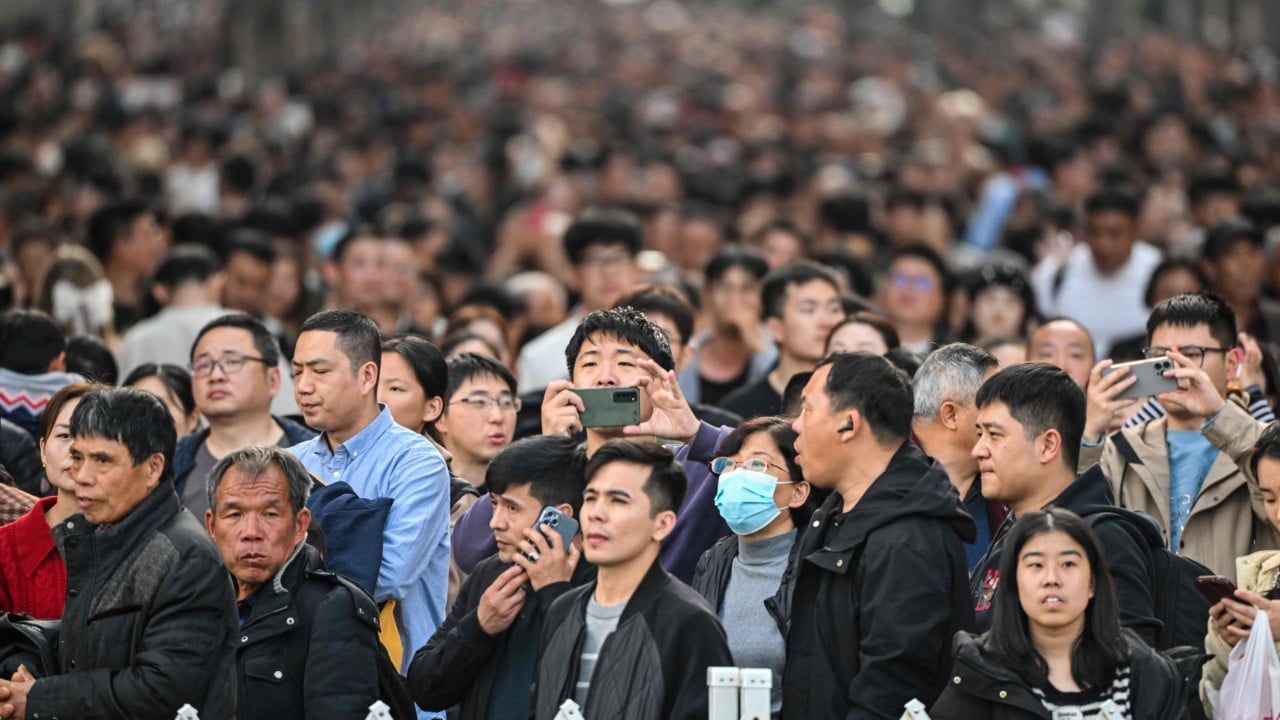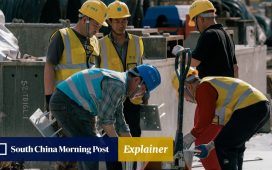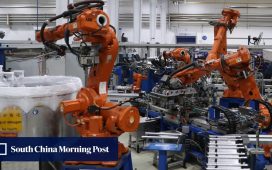
Shanghai is looking to maintain uninterrupted production and kick-start economic growth by organising chartered transport to bring workers back from other provinces during the ongoing Lunar New Year holiday.
On the fourth day of the week-long holiday on Tuesday, the Shanghai municipal government chartered a plane to transport more than 30 workers from Yunnan province, according to Yicai, a Shanghai-based business and financial media outlet.
It plans to bring 20 more batches of workers from various provinces and cities through chartered “point-to-point” planes, trains and buses, according to the report.
The Shanghai Human Resources and Social Security Bureau had already initiated recruitment campaigns and negotiated chartered transport services with local governments in key labour-exporting provinces in late December.
China’s foreign firms fear golden era over as Beijing aims to ‘solidify control’
China’s foreign firms fear golden era over as Beijing aims to ‘solidify control’
“We found that many workers were already seeking jobs ahead of the holiday, some would return to Shanghai to fill in high-demand roles such as housekeeping and catering during the festival. Meanwhile, frontline positions in enterprises may experience temporary shortages due to the long holiday,” bureau director Yang Jiaying said.
Shanghai has continued its traditional practice of ensuring ample labour during the holiday, though this year it planned farther in advance, with more batches of workers, aiming to better align the employment needs of workers and enterprises, the report said.
Analysts said more provinces are likely to see a hiring surge in the next quarter.
“The influx traffic of workers is very noticeable across China this year, especially in the Yangtze River Delta and the Pearl River Delta, where these prominent manufacturing hubs are fiercely competing to attract labour resources,” said Peng Peng, executive chairman of the Guangdong Society of Reform.
The performance of the job market in the first quarter could be moderate, but it should see a strong rebound in the second quarter, according to Peng.
“While the overall economy may not show promising signs in the first half of the year, the implementation of market-friendly incentives by local governments, the diminishing scarring effect of the pandemic, and the traditional Chinese ethos of wealth accumulation all point to the potential for China to overcome previous challenges and witness a notable economic rebound in the second half of the year.”
Millions of teachers in China face losing their jobs as birth rate plunges
Millions of teachers in China face losing their jobs as birth rate plunges
The Lunar New Year is the most important festival in China, and includes the world’s largest human migration, forcing factories to hire temporary workers at higher salaries to meet order deadlines.
To ensure China reaches its growth target for 2024, coastal provinces are already taking steps to ensure stable industrial production.
The eastern province of Jiangsu plans to hold more than 3,000 recruitment events by April 8, to create more than 1 million jobs, especially at companies in key supply chains, while also providing job opportunities and training for elder migrant workers, the official Xinhua reported last week.







